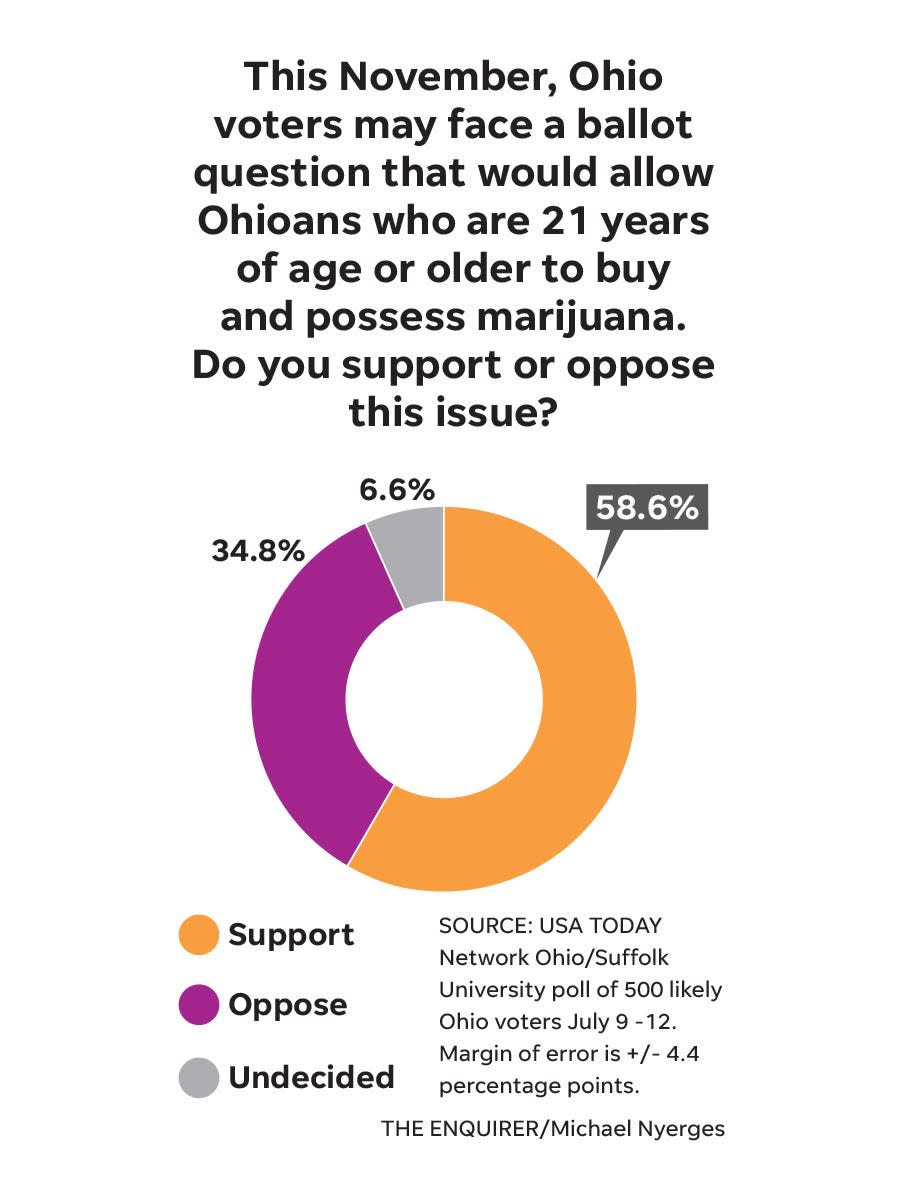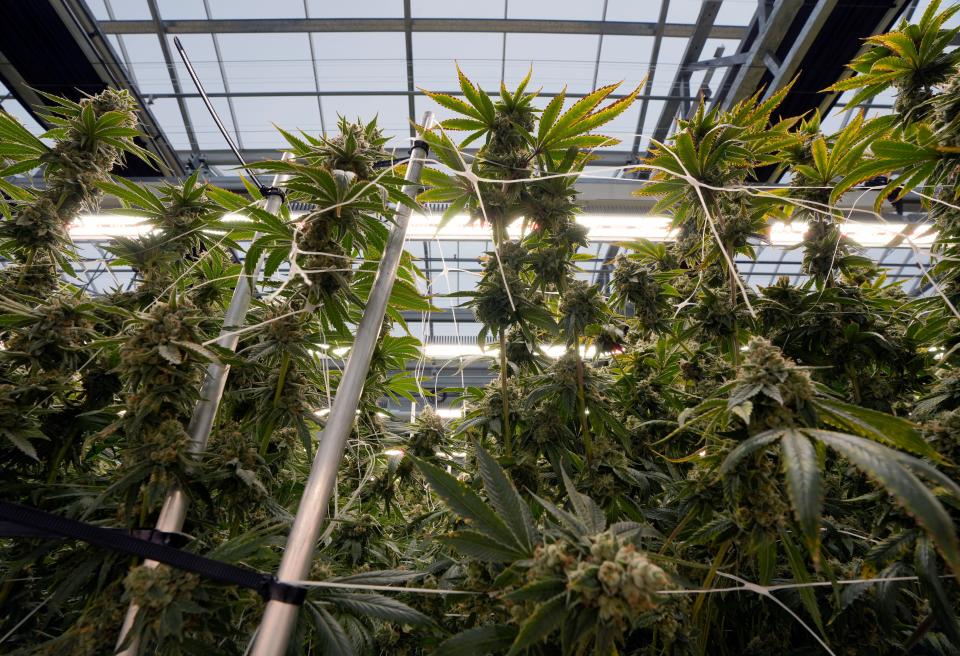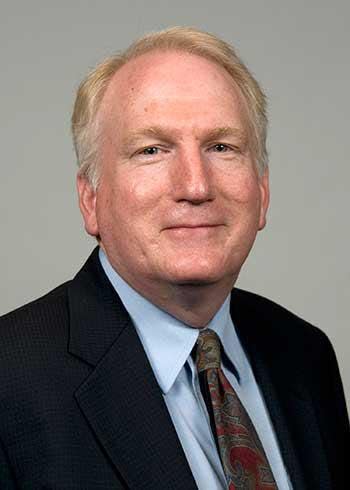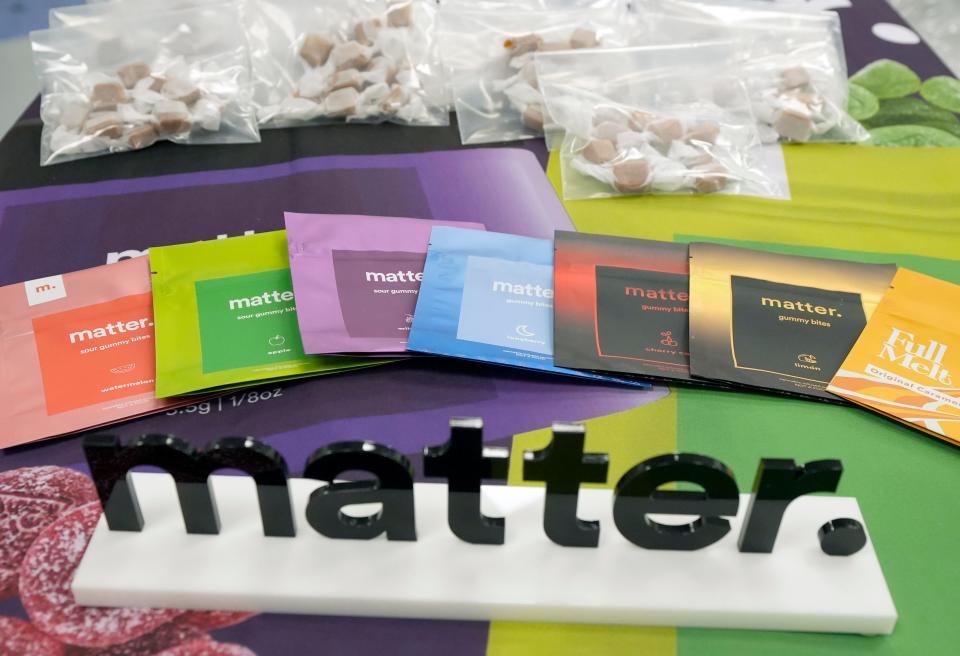'Marijuana is, in fact, a problem.' This drug component makes it addictive| Doctor
Dr. Mark Hurst is a psychiatrist who specializes in addiction medicine and the former medical director at the Ohio Department of Health and Ohio Department of Mental Health and Addiction Service.
I can’t count the number of times that I have heard a patient tell me, “But doc, it’s just weed—what’s the big deal?”
For 35 years I have worked as a medical doctor in the area of addiction treatment. I have worked with Ohioans of all ages, races and incomes as they have sought to free themselves from the prison of addiction and find a meaningful way forward with their lives.
It's official: Ohio will vote on legalizing recreational marijuana in November
More: State medical director retires only days before Dr. Amy Acton resigns amid pandemic
It is never easy, but true success for my patients has always started with understanding that there is a problem. That has often meant coming to grips with the truth that their use of marijuana is, in fact, a problem.

The “big deal” about marijuana is that THC — tetrahydrocannabinol, the main “drug” component of marijuana is addictive, as confirmed by research by the National Institutes of Health, Mayo Clinic, Cleveland Clinic, the World Health Organization, and other preeminent health organizations around the globe.
Will Ohio legalize marijuana? Here's what lawmakers, advocates and experts say
People susceptible to marijuana addiction crave it and cannot stop using it on their own. Their regular use creates tolerance, leading to a need for more and more THC to relieve their craving or avoid withdrawal symptoms like insomnia, nausea, and headaches.

Poll: Over 58% of Ohio voters support legalizing adult marijuana use
Legalizing marijuana for recreational purposes will make this addictive drug more available and increase the number of people using it. And the more people who use it the more who will become addicted.
Legalizing marijuana for recreational use does not change this reality.
Another claim I hear is, “Lots of people smoke marijuana and don’t get addicted.”
True, just like with all drugs that can cause addiction. Most adults drink alcohol and do so in moderation without a problem, but some develop an addiction to it, with devastating effects on their lives and the lives of others. So it is with marijuana.
Many people try marijuana, and some develop an addiction leading to their lives — and the lives of others — being turned upside down.

This is especially concerning when we think of young people. The law proposing to legalize recreational marijuana use and retail sales on Ohio’s November 7 statewide ballot would restrict it to Ohioans over age 21.
We know from the experience with alcohol, however, that such a prohibition is hardly airtight. Alcohol is the most-used addictive substance among teenagers even though it is illegal for them to have and consume.
Early exposure to any addictive substance is concerning because research shows that the earlier in life a person is exposed to one, the greater their risk of addiction to it. Additionally, few people would confuse a can of beer with a juice box, but today marijuana comes in forms that are indistinguishable from candy, making it easy for children to be attracted to it and consume it if they come across it in their homes.
THC consumption by young people is dangerous because its effects on developing brains is detrimental. It has been found to impair learning, attention, memory, coordination, and reaction time. When a young person’s developing brain experiences these effects—it means that children who are exposed to THC may never achieve their maximum potential. We all lose when that happens.
The existence of medical marijuana in Ohio is often raised as a justification for its wider, recreational use, but that’s not an argument that is made for other addictive drugs with therapeutic uses. The science on medical marijuana’s therapeutic value is thin, but even so, there are many legally-available therapeutic medicines that are addictive, and that is why they are prescribed by a medical professional and their access is tightly controlled and monitored. They are not available for recreational use.

There is big money in marijuana—at last count it was a $30 billion industry, so it’s easy to see why the corporate marijuana companies would want to expand in Ohio. In the final assessment, though, marijuana is an addictive drug and addiction (including addiction to marijuana) destroys people, families and communities. Addiction also brings with it burdensome costs and disruption to employers and taxpayers. Legalizing marijuana for recreational use doesn’t make these problems go away, in fact, it magnifies them.
Recreational marijuana isn’t a risk that is worth it, and Ohioans should think very, very carefully before they vote on November 7.
I hope they will join me in voting “no.”
Dr. Mark Hurst is a psychiatrist who specializes in addiction medicine and the former medical director at the Ohio Department of Health and Ohio Department of Mental Health and Addiction Service.
This article originally appeared on The Columbus Dispatch: Former Ohio medical director: THC is the “big deal” about marijuana.

